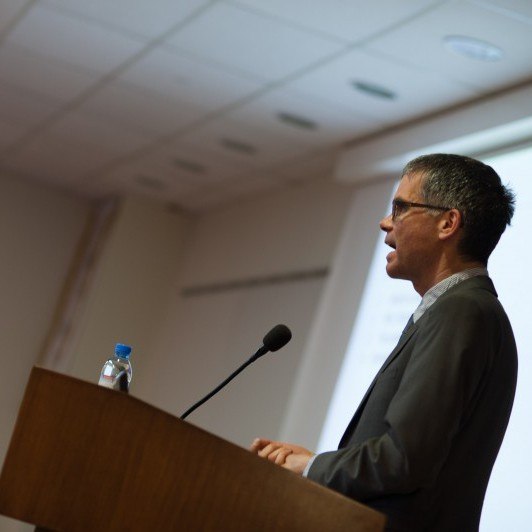The first European Workshops in International Studies (EWIS) gave a comprehensive view of the state of the discipline, with 14 sessions running in parallel and 200 researchers participating.
Global governance is still on the top of the research agenda, despite the progressing fragmentation of the West and the uncertainty concerning the international intentions of "rising powers." Practically half of the participants chose to speak about norms, legitimacy and institutions – although not necessarily from idealist positions. Thomas Diez, one of the leading European voices in debates on normative power and a co-chair of EWIS, proposed to start tackling norm projection as one of (the most effective) forms of hegemony. This sounds quite fair.
It seems illustrative that even those scholars who gathered for the energy studies workshop were basically concerned about immaterial effects of oil and gas industries and their security ramifications. Indeed, the major problem that Gazprom faces in Europe boils down to its reluctance to observe EU anti-trust rules and other regulations. By the same token, the effects of the so-called shale gas revolution on energy markets are impossible to grasp without paying attention to how much we know about the repercussions of alternative energy resources, of how information flows are organized, and how they influence (mis)perceptions among decision-makers. Paradoxically indeed, sometimes norms are more visible and provable than unstable and constantly-shifting interests.
The normative turn in international relations theory explains the high interest in the constantly-reproducing political effects of relations between key international actors. Many scholars have been painstakingly looking for sources of politicization in diverse fields, from visual arts to economic interactions. Many deem that politics is born out of the ongoing debates over key concepts that we use for describing international reality.
Take, for example, the idea of the “West.” Neoliberalism – one of the ideological foundations for its hegemony – may be in decline, but this is not to say that non-Western (in particular, post-colonial) theories can offer better explanations for world trends. As one academic in the Tartu workshops noted, we should be careful about glorifying all "subaltern" voices (coming from Iran, Turkey, Russia, etc.), and shouldn't forget to pay closer attention to what kind of regimes they are.
The concept of modernity – another "big" word in international studies – is also among the most contested. Barry Buzan, a leading voice of the English School of IR theory, in his keynote speech claimed that in some sense we are going back to the international structure of the pre-modern world. By the same token, he strongly appealed to study more closely the 19th century as an axial time, a departing point for contemporary ideologies and concepts of power. This may only confirm that hegemony and exclusion are universal mechanisms of identity-building, both historically and in the contemporary world – in the West or in the East.
Andrey Makarychev is a Professor at the Institute of Government and Politics, University of Tartu, blogging for PONARS Eurasia on the Russia-EU neighborhood.









